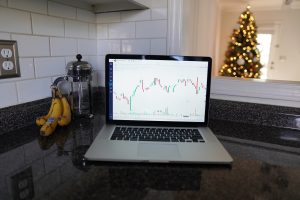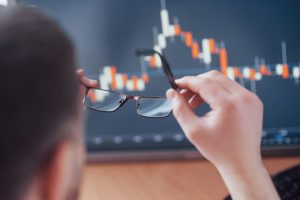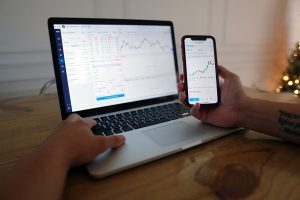
Leverage in Forex Trading: A Double-Edged Sword
Forex trading, the largest and most liquid financial market in the world, offers ample opportunities for investors to profit from currency fluctuations. However, this market also presents substantial risks. One of the critical tools that traders use to magnify their potential gains - and losses - is leverage. In this article, we'll explore the role of leverage in forex trading and why it's often described as a double-edged sword.
Understanding Leverage
Leverage in forex trading is a borrowing mechanism that allows traders to control a more substantial position size than they could with their capital alone. It works by using a small amount of your own money (margin) to control a more massive position in the market. Leverage is typically expressed as a ratio, such as 50:1, 100:1, or even 500:1, representing the amount of borrowed money compared to your initial investment.
The Appeal of Leverage
Why do forex traders use leverage? Here are a few reasons:
- Amplified Profits: Leverage can magnify profits when currency prices move in the trader's favor. With a relatively small initial investment, traders can control more significant positions, leading to larger gains in percentage terms.
- Capital Efficiency: Leverage allows traders to diversify their trading activities across multiple currency pairs without tying up large sums of capital.
- Intraday Trading: Leverage is particularly popular among intraday traders (day traders) who seek to profit from short-term price movements. It enables them to open and close positions within the same trading day with minimal capital.
The Risks of Leverage
While leverage offers the potential for higher returns, it also comes with significant risks:
- Increased Losses: The same magnification that can amplify profits can also exaggerate losses. If the market moves against a leveraged position, losses can accumulate rapidly, potentially exceeding the trader's initial investment.
- Margin Calls: Forex brokers require traders to maintain a certain amount of margin in their accounts to cover potential losses. If losses deplete the margin, a margin call can occur, forcing the trader to either deposit more funds or close positions at a loss.
- Emotional Stress: High leverage can lead to emotional stress, as traders may feel pressured to make impulsive decisions to recover losses, which can worsen their financial situation.
Responsible Use of Leverage
Given the risks associated with leverage, it's essential for forex traders to use it responsibly:
1. Education
Before using leverage, traders should thoroughly understand how it works and the potential consequences of leverage-induced losses. Education and proper training are crucial.
2. Risk Management
Implementing robust risk management strategies is paramount. This includes setting stop-loss orders to limit potential losses and ensuring that the amount of leverage used is appropriate for the trader's risk tolerance and overall trading strategy.
3. Adequate Capital
Traders should have sufficient capital to cover potential losses and margin requirements without risking their financial stability. Never trade with money you cannot afford to lose.
4. Avoid Overleveraging
Overleveraging, where the trader uses an excessively high ratio of leverage, should be avoided. It increases the likelihood of margin calls and significant losses.
The Psychological Aspect of Leverage
It's crucial to recognize that leverage not only affects your financial position but also your psychological state as a trader. The amplified gains and losses that come with leverage can lead to emotional highs and lows. When trades are going well, overconfidence can set in, and traders might be tempted to take on even more risk. On the flip side, when losses accumulate rapidly due to leverage, fear and panic can take hold, leading to impulsive decisions that can worsen the situation.
One of the most significant challenges for traders using leverage is maintaining discipline and emotional control. This is where a well-thought-out trading plan becomes indispensable. Traders should establish clear entry and exit points, set stop-loss orders, and adhere to risk management principles religiously. Emotional detachment from trades is essential to avoid making decisions driven by fear or greed.
Choosing the Right Leverage Level
Not all leverage ratios are created equal, and choosing the right level of leverage is a critical decision for forex traders. Higher leverage ratios offer the potential for more substantial gains but also come with greater risks. Traders should carefully evaluate their risk tolerance, experience level, and trading strategy before deciding on a leverage ratio.
Novice traders or those with a low risk tolerance may opt for lower leverage ratios, such as 10:1 or 20:1, to minimize the risk of significant losses. On the other hand, experienced traders with a high-risk tolerance may choose higher leverage ratios, but even then, they should do so with caution and a clear understanding of the associated risks.
Regulatory Measures
It's worth noting that regulatory authorities in various countries have implemented measures to protect retail forex traders from excessive leverage. For example, the European Securities and Markets Authority (ESMA) introduced regulations limiting the maximum leverage that brokers can offer to retail clients. Such measures are aimed at reducing the potential for large-scale losses among inexperienced traders.
Traders should be aware of the regulations in their jurisdiction and ensure they are trading with a reputable and regulated broker. Additionally, understanding the broker's margin requirements and policies is crucial, as they can vary significantly between providers.
Conclusion
Leverage in forex trading is indeed a double-edged sword. While it can amplify profits and provide opportunities for traders, it also exposes them to substantial risks and emotional challenges. Responsible use of leverage involves a combination of education, risk management, psychological discipline, and choosing the right leverage level based on individual circumstances.
Ultimately, the key takeaway is that leverage should be viewed as a tool to enhance trading strategies, not as a shortcut to wealth. Success in forex trading depends on a well-rounded approach that encompasses not only leverage but also solid market analysis, risk management, and a disciplined mindset. By mastering the art of leverage, traders can navigate the forex market with greater confidence and resilience, better equipped to harness its potential rewards while avoiding its pitfalls.
Latest Posts


Harnessing Volatility: Advanced Techniques for Profiting in the Forex Market

Technical vs. Fundamental Analysis: Choosing the Right Approach

Deciphering Market Trends: Strategies for Successful Stock Market Investing

Leverage in Forex Trading: A Double-Edged Sword
